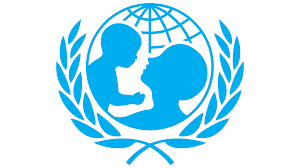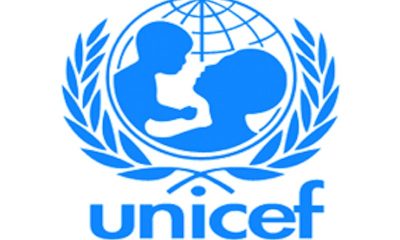Metro
Early Marriage: UNICEF Nigeria Advocates for Mandatory Female Education

The United Nations Children’s Fund (UNICEF) in Nigeria has advocated compulsory education for girls as a safeguard against forced early marriage/
Mr Peter Hawkins, UNICEF Country Representative in Nigeria, made the remarks while appearing as a special guest on the News Agency of Nigeria (NAN) interview program, Forum, in Abuja.
Hawkins, who stated that child marriage was still a major issue in the country, urged all stakeholders to look for ways to prevent this in order to keep children who are supposed to be in school in school.
“How do we ensure that girls complete the full grade 12 curriculum until the age of 18 so that they can make decisions about their future?”
“That is the most important issue that we must consider.” Girls who do not attend school, particularly junior secondary school, marry or are married off, and I believe that we must encourage girls to attend school.” If they are attending school, this effectively postpones the marriage. If they don’t go to school, it accelerates the marriage because it is a protection mechanism.
“ As many traditional, religious leaders across the country tell me when we discuss child marriage, we need to look at those as well in UNICEF.
“Child marriage is a major issue, and I’m sure you’ll touch on it in Nigeria.”
Hawkins stated that girl-child education was one of UNICEF’s top priorities due to its significant impact on the health of adolescent girls.
He stated that UNICEF’s Girls Education Programme (GEP) was an intervention designed to raise awareness about issues concerning girls and education in the country.
“The program will continue as other interventions rather than as GEP; what it did was highlight the issue of girls and education and looked into many different elements.”
One is access, which is concerned with distance and other factors; how do girls get to school?, how can they attend school? Are our families prioritizing the girls’ ability to attend school?
“The second aspect is the environment in the school, which is about gender, teachers—that is, women and men teachers in the school—to make it possible.” The third is the transition from primary to secondary school, which has many different aspects.”
The UNICEF representative in Nigeria urged the government to consider the social aspects of girl-child education, such as the provision of WASH facilities and the travel distance to and from schools.
Hawkins stated that these, among other things, would encourage girls to learn and curb early marriage. (NAN)
Send Us A Press Statement Advertise With Us Contact Us
And For More Nigerian News Visit GWG.NG














